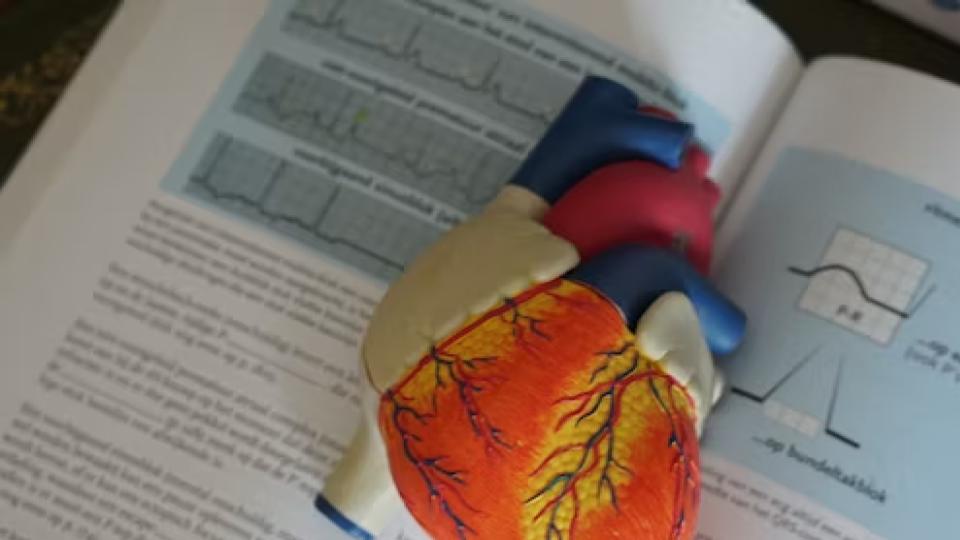World Heart Day is just around the corner, and it serves as a vital reminder of the importance of heart health.
On this occasion, let’s explore the insights of a cardiologist regarding signs of poor cardiac health.
World Heart Day falls on September 29th every year, and its primary objective is to raise awareness about heart conditions and the risk factors that contribute to cardiac-related fatalities.
The heart, undoubtedly our most crucial organ, deserves our daily attention through physical activity and a heart-healthy diet.
What’s alarming is that heart attacks, once associated with the elderly, are increasingly prevalent among young individuals and even children.
Recognizing the early signs of heart trouble is essential, as prompt treatment can save lives and prevent further damage.
Symptoms such as fatigue, leg and foot swelling, dizziness, irregular heartbeats, and chest discomfort should never be ignored; instead, they should prompt immediate consultation with a healthcare professional.
Heart disease, a leading global cause of death, can be effectively managed and even prevented when certain warning signs are detected early.
The consequences of neglecting the warning signs of heart disease can be dire, sometimes even fatal. Early identification of these signs can significantly aid in the treatment and prevention of heart disease.

Warning Signs of an Unhealthy Heart
Chest Pain or Discomfort
Frequent chest pain, often described as tightness, pressure, squeezing, or burning, may indicate heart trouble.
This discomfort can radiate to the arms, neck, jaw, or back. Any unexplained chest pain warrants immediate evaluation.
Shortness of Breath
Feeling breathless even with minimal physical activity or while at rest can be a sign of a cardiac condition. It may be accompanied by a sensation of suffocation or gasping for air.
Fatigue
Persistent and unexplained fatigue, especially if it interferes with daily activities, could be indicative of a cardiac condition. Low energy levels may result from the heart’s inability to pump blood efficiently.
Irregular Heartbeat
Palpitations, fluttering, or irregular heartbeats are significant warning signs. Arrhythmias, or irregular heart rhythms, can signal more serious heart issues.
Swelling (Edema)
Swelling in the legs, ankles, feet, or abdomen may indicate heart failure. When the heart struggles to pump blood effectively, fluid can accumulate in the body.
Dizziness or Fainting
Insufficient blood supply to the brain, often associated with heart disease, can lead to light-headedness, dizziness, or fainting. These occurrences require immediate attention.
Excessive Sweating
Excessive sweating, particularly when accompanied by other symptoms like chest pain or shortness of breath, could be a sign of a cardiac issue, such as a heart attack.
Nausea or Vomiting
Some individuals, especially women, may experience nausea or vomiting during a heart attack or other cardiac events. Unfortunately, these symptoms are sometimes mistaken for digestive issues.
Upper Body Pain
Pain or discomfort in the upper belly, arms, shoulders, neck, or jaw can signal heart problems, especially in women.
Unexplained Weight Gain
Sudden weight gain resulting from fluid retention due to heart failure should not be overlooked.
Ignoring these warning signs may lead to more severe cardiac problems or even a fatal outcome.
Early detection and treatment significantly improve the chances of managing heart issues and avoiding complications.
Remember that adopting a heart-healthy lifestyle and regular medical check-ups play pivotal roles in reducing the risk of developing heart disease.
- Teenage Mental Health Alert: Recognizing Signs and Seeking Help
- Top 5 YouTube Channels for Health and Wellness in Hindi in India
- Science-based Health Benefits of a Vegan Diet
- High Blood Pressure (Hypertension): Silent Threat to Your Health
- World Pharmacist Day 2023: Celebrating Excellence in Pharmacy
